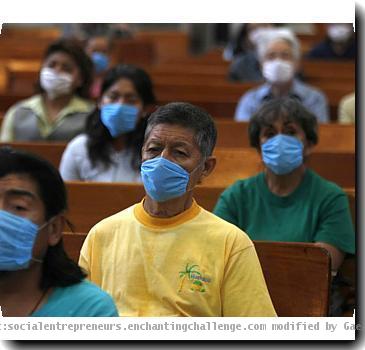Obesity rates: Gap closing between what Americans say they weigh and what measurements show more images Poll: Professionals working with children say whites have more opportunities than minorities
Poll: Fewer opportunities seen for minority kids How the poll on health overhaul was conducted
How the poll on health overhaul was conducted How the AP-GfK poll on Obama was conducted
How the AP-GfK poll on Obama was conducted How the AP-GfK Poll on health care was conducted
How AP-Gfk Poll on health care was conducted AP Poll: Americans favor overhauling health care, want parties to cooperate
AP Poll: Americans want health care bipartisanship Poll: Young adults glum over their financial future, politics favor GOP
Poll: Financially pinched, young adults lose faith Public concern about swine flu has dropped, poll finds; one-third don’t want vaccine for kids
AP Poll: Americans support making it harder to sue doctors, hospitals for mistakes
AP Poll: Support for curbs on malpractice lawsuits How the poll on flu was conducted
How the poll on flu was conducted The Associated Press-GfK Poll on the flu and flu vaccinations was conducted by GfK Roper Public Affairs & Media from Nov. 5-9. It is based on landline and cell phone telephone interviews with a nationally representative random sample of 1,006 adults. Interviews were conducted with 806 respondents on landline telephones and 200 on cell phones. Harvard poll finds a third of adults who sought vaccine were able to get it; supplies rising
Harvard poll finds only about a third of adults who sought vaccine were able to get it more images How the poll on the flu was conductedHow the poll on the flu was conducted The Associated Press-GfK Poll on the flu was conducted by GfK Roper Public Affairs & Media from Oct. 1-5, 2009. It is based on landline and cell phone telephone interviews with a nationally representative random sample of 1,003 adults. Interviews were conducted with 803 respondents on landline telephones and 200 on cellular phones. AP Poll: Young adults still less interested in swine flu shots than last-in-line seniorsAP Poll: Only half of people want swine flu shots WASHINGTON — The people who most want the swine flu vaccine are older people, who will be last in line, says a new Associated Press-GfK poll. AP Poll: More than a third of parents say they’ll opt out of swine flu vaccine for kidsAP Poll: Third of parents oppose swine flu vaccine ATLANTA — As the first wave of swine flu vaccine crosses the country, more than a third of parents don’t want their kids vaccinated, according to an Associated Press-GfK poll. How the poll on health care was conducted
How the poll on health care was conducted The Associated Press-GfK Poll was conducted by GfK Roper Public Affairs & Media from March 3-8. It was based on landline and cell phone telephone interviews with a nationally representative random sample of 1,002 adults. Interviews were conducted with 702 respondents on landline telephones and 300 on cellular phones. How the poll was conducted
How the poll was conducted The Associated Press-GfK Poll on health care was conducted by GfK Roper Public Affairs & Media from April 7-12, 2010. It is based on landline and cell phone telephone interviews with a nationally representative random sample of 1,001 adults. Interviews were conducted with 701 respondents on landline telephones and 300 on cellular phones. AP Poll: Seniors most interested in swine flu shots even though they’re to be last in lineAP Poll: Seniors most interested in swine flu shot WASHINGTON — Americans are getting more worried about catching swine flu — but the people who most want that vaccine are the age that will be last in line, says a new Associated Press-GfK poll. Methodology for AP poll on health care
Methodology for AP poll on health care The Associated Press poll on health care, by Stanford University with the Robert Wood Johnson Foundation, was conducted by GfK Roper Public Affairs & Media from Oct. 29-Nov. 8. It is based on landline and cell phone telephone interviews with a nationally representative random sample of 1,502 adults. Interviews were conducted with 1,052 respondents on landline telephones and 450 on cellular phones. |